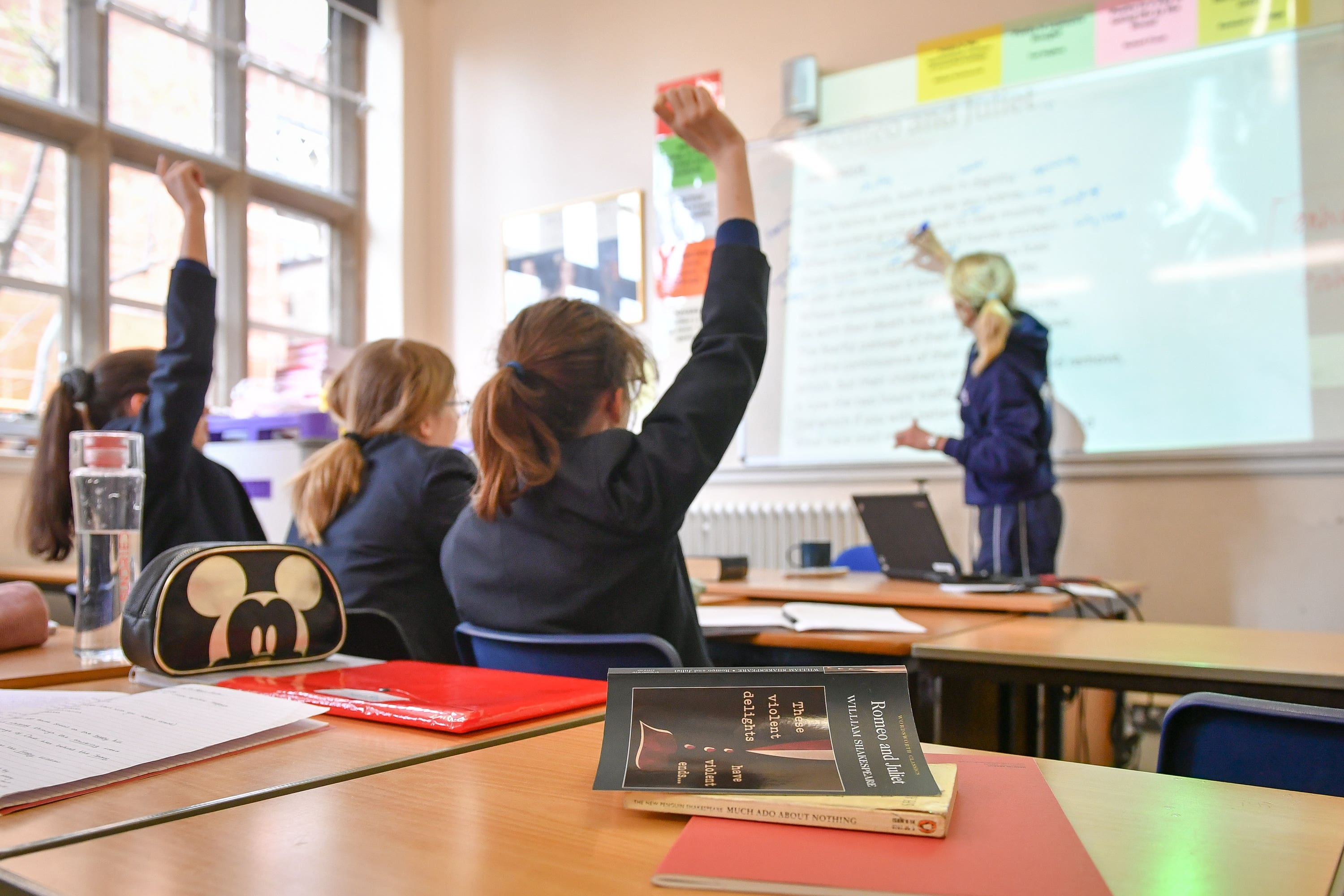Poorer pupils less likely to secure places at top comprehensive schools – study
More than 150 comprehensive secondary schools in England are more ‘socially selective’ than the average grammar school, a report has found.

Your support helps us to tell the story
From reproductive rights to climate change to Big Tech, The Independent is on the ground when the story is developing. Whether it's investigating the financials of Elon Musk's pro-Trump PAC or producing our latest documentary, 'The A Word', which shines a light on the American women fighting for reproductive rights, we know how important it is to parse out the facts from the messaging.
At such a critical moment in US history, we need reporters on the ground. Your donation allows us to keep sending journalists to speak to both sides of the story.
The Independent is trusted by Americans across the entire political spectrum. And unlike many other quality news outlets, we choose not to lock Americans out of our reporting and analysis with paywalls. We believe quality journalism should be available to everyone, paid for by those who can afford it.
Your support makes all the difference.Poorer pupils are less likely to get into top-performing comprehensive schools than their peers even if there is one in their local area, a study has found.
More than 150 comprehensive secondary schools in England are more “socially selective” than the average grammar school, according to research by the Sutton Trust.
The charity is calling on the Government to review admissions code policies to ensure children eligible for the pupil premium – which is funding for state schools to improve educational outcomes for disadvantaged pupils – are included in a school’s oversubscription priority criteria.
The Sutton Trust study looked at the top 500 secondary schools in England by the Attainment 8 measure – which assesses the achievement of a pupil across eight subjects at GCSE.
It found, on average, these top comprehensive schools took 40% fewer pupils eligible for free school meals (FSM) – a key measure of poverty – than the average comprehensive school.
The levels of social segregation across the school system are unacceptable
The research suggested that around a third of this gap is down to the schools being located in more affluent areas, but two-thirds represent “some form of social selection within that area”.
These top comprehensive schools have 30% fewer pupils eligible for FSM than live in their catchment areas, according to the Sutton Trust.
This could be down to a “complex mixture of factors” – including schools’ complicated admissions policies, parental decision-making and degrees of parental agency, it added.
The research found that levels of social selection differed across England, with the lowest number of top schools concentrated in some parts of the country with the highest FSM rates.
In the North East, there has been increasing levels of FSM eligibility, fewer top comprehensive schools and “increasing levels of social selectivity” in the top schools that they do have, it found.
Faith schools are also more likely to be “socially selective” than the non-religious top comprehensive schools, according to the report.
The research concluded: “This report finds little evidence to suggest that comprehensive schools are becoming less socially selective, strong evidence that things have not improved since 2017 and some clear evidence pointing to increasing levels of social selection in comprehensive admissions in some parts of the system.”
Sir Peter Lampl, founder of the Sutton Trust, said: “The levels of social segregation across the school system are unacceptable.
Fairer access is not just about admissions practices
“The poorest parts of the country are hit by a double whammy of having the fewest top comprehensive schools, which are also the most socially selective. This is deeply concerning.”
He added: “We need to urgently address this problem to create a more balanced system and raise the quality of all schools.
“The Government should review the school admissions code to ensure all state schools take a mix of pupils which reflects their local community and provide disadvantaged pupils with a fair chance to access top-performing schools.”
The Sutton Trust has also called on the Government to include an assessment of fair access in Ofsted inspections and to address financial barriers such as transport and uniform costs.
The charity – which has called on school leaders to carry out fair access reviews – will be launching a campaign to encourage schools to review and change their admissions policies.
Geoff Barton, general secretary of the Association of School and College Leaders (ASCL), said the union supported the charity’s call for a review of the school admissions code and their plans for a fairer admissions campaign.
He added: “Fairer access is not just about admissions practices. It is also about ensuring that all schools have the support and resources they need to provide a high-quality education wherever they are and whatever their context.
“Currently, we have an inspection system which often actively damages schools that face the greatest challenges by the application of negative ratings which make it more difficult to recruit staff and pupils.
“This means these schools are particularly badly affected by national teacher shortages and funding pressures which in turn makes improvement harder to secure.”
A Department for Education spokesperson said: “We are taking the long-term decisions to ensure every school is delivering the best quality education for pupils, including through our multimillion-pound maths and English hubs programme and phonics screening check.
“Education standards have risen sharply across the country since 2010 with 89% of schools now rated good or outstanding by Ofsted, up from just 68% 13 years ago.
“The School Admissions Code requires admission arrangements to be fair, clear and objective, and no child should be unfairly disadvantaged.
“Admission authorities can choose to prioritise children eligible for the pupil premium when they are over their published admission number according to the need of their local area.”